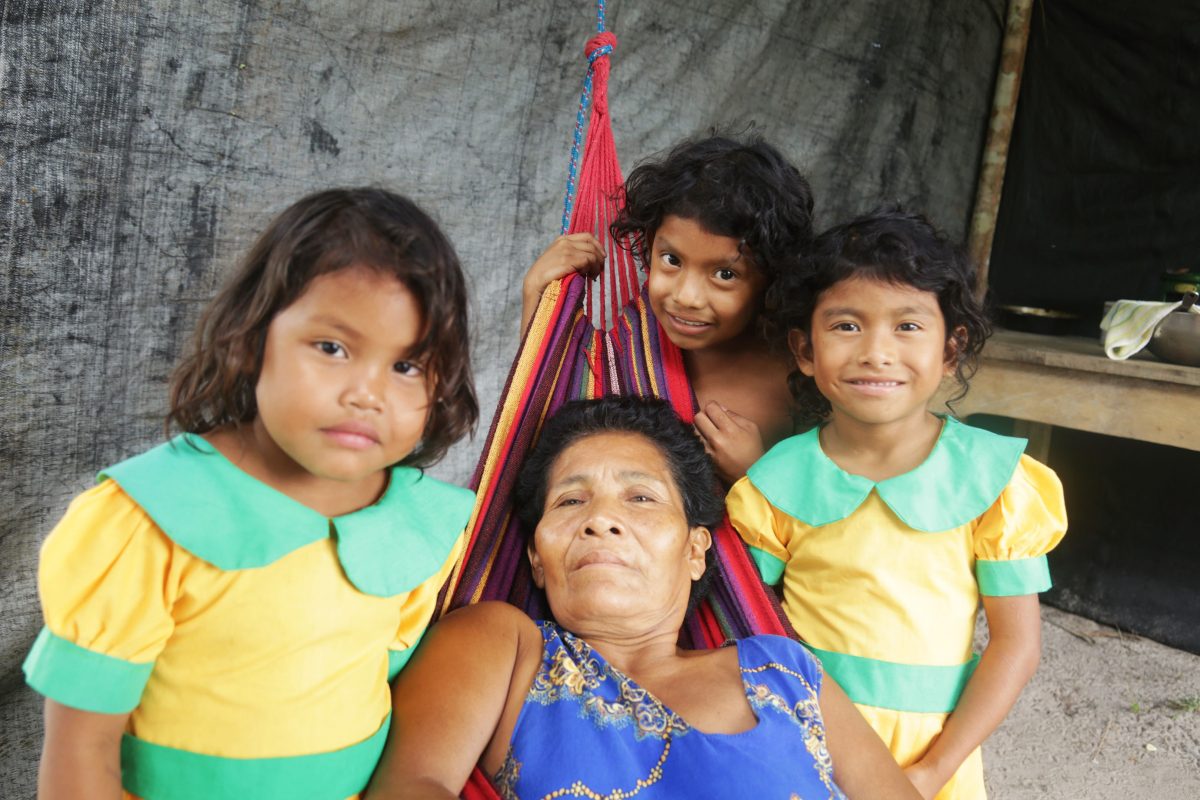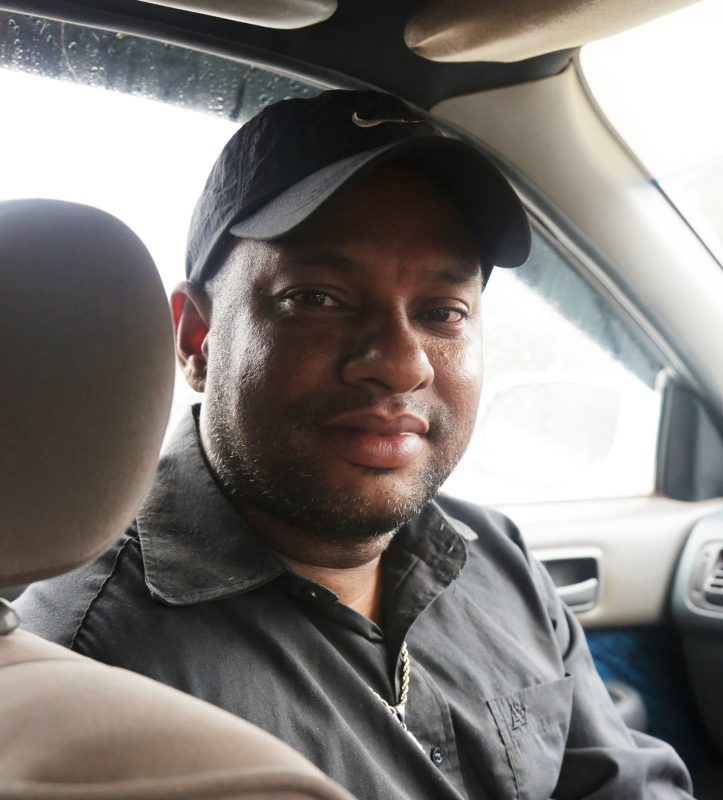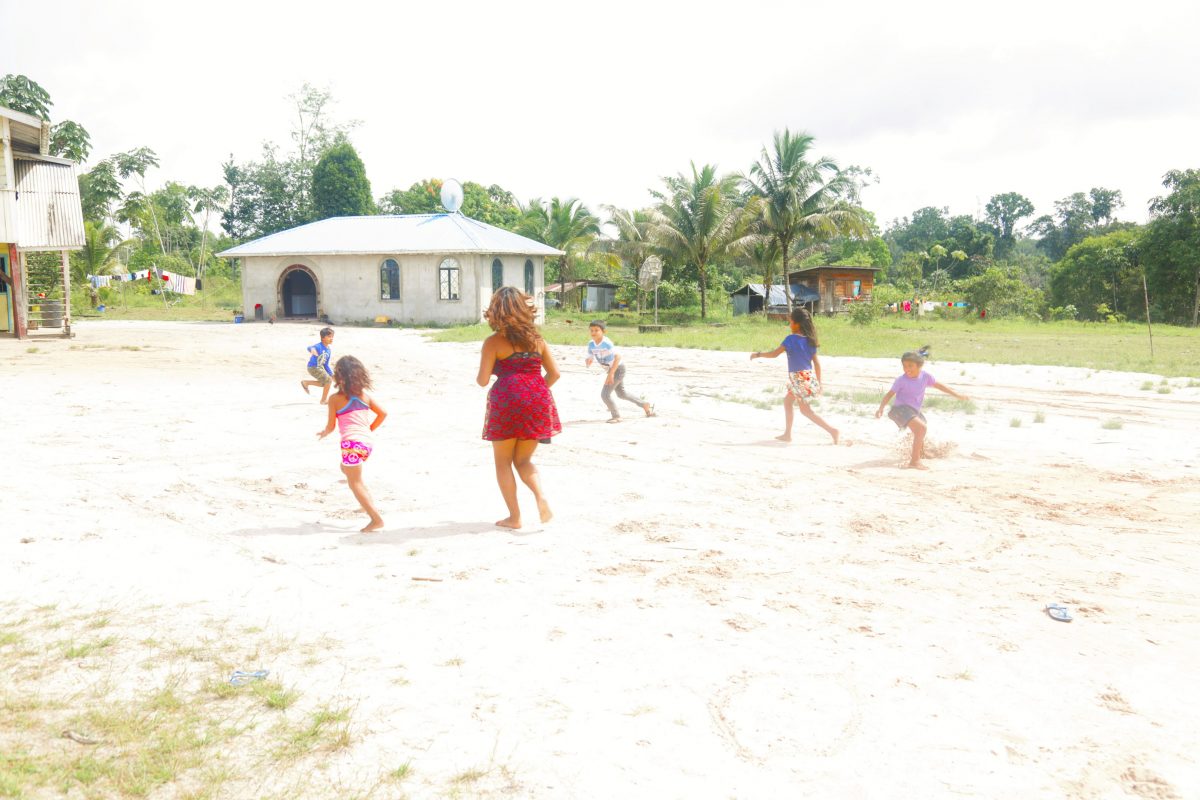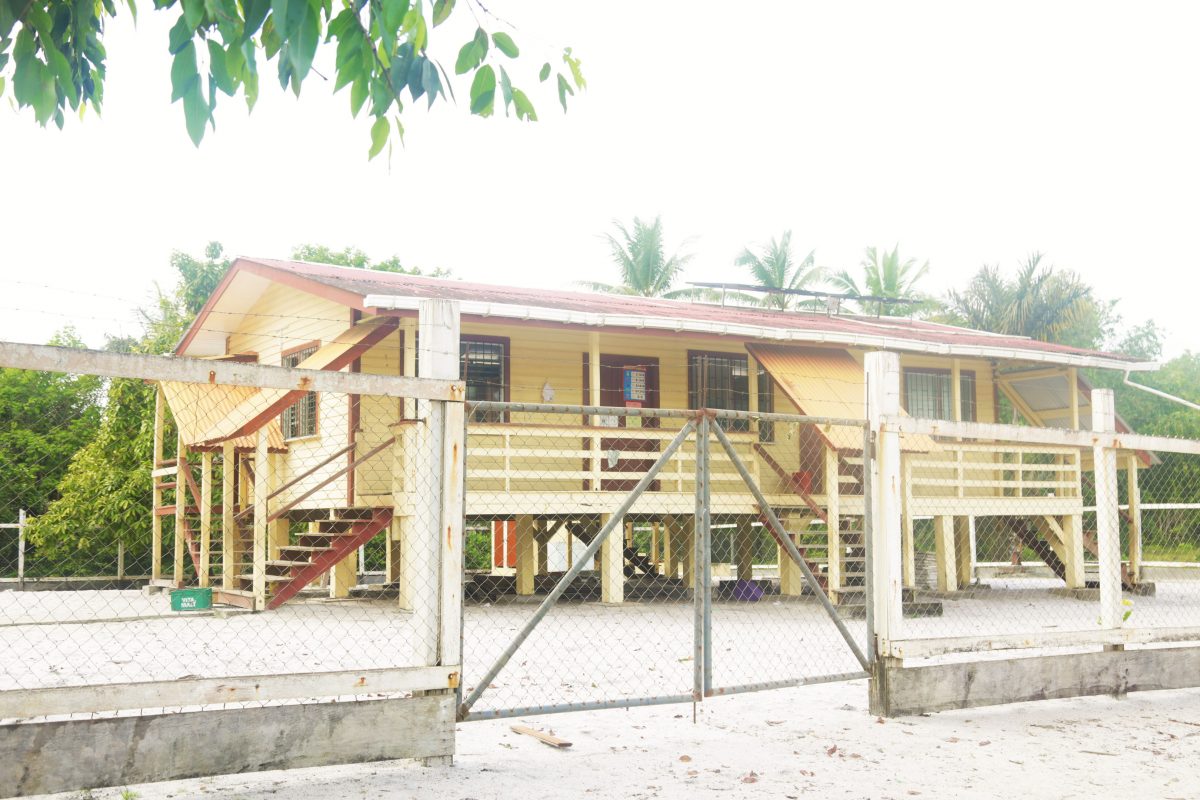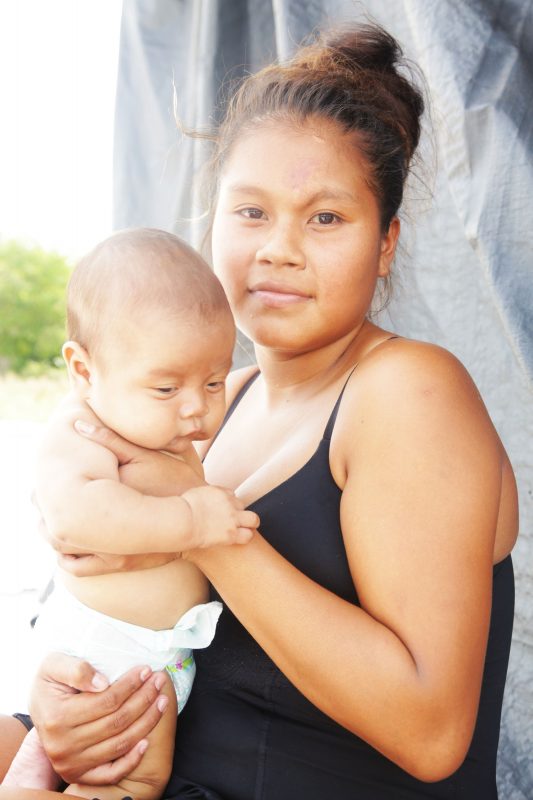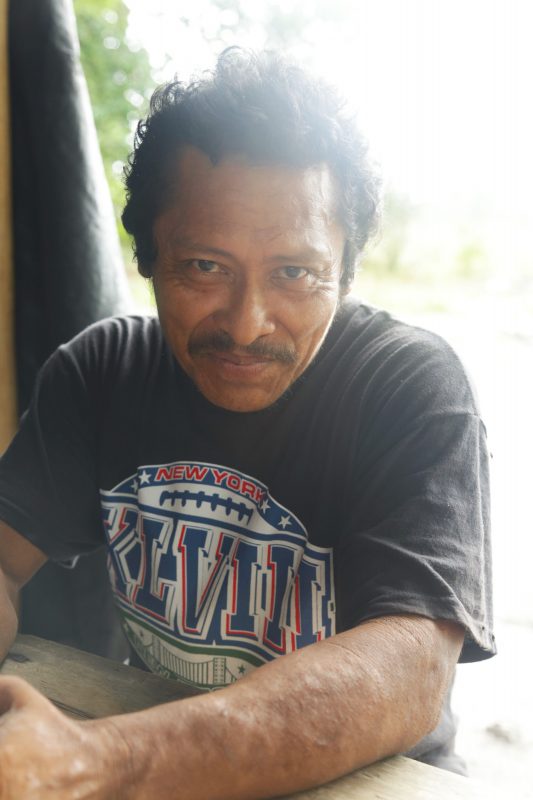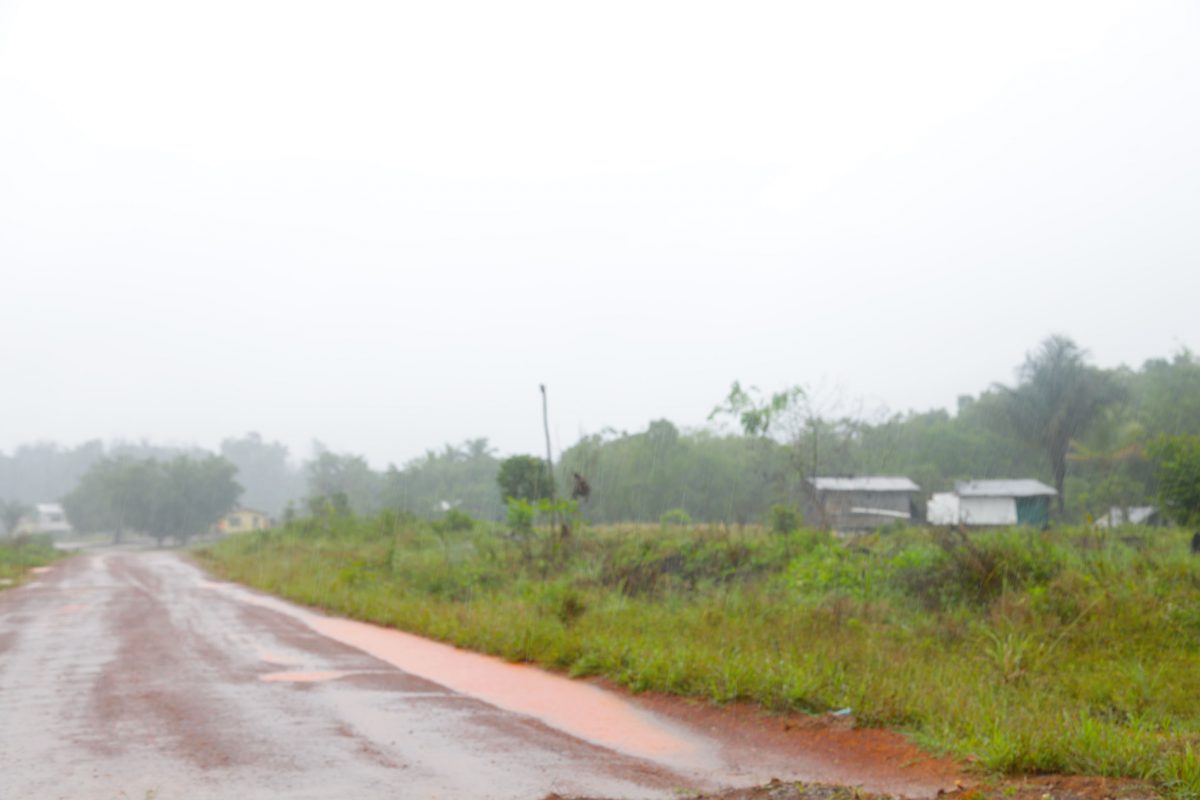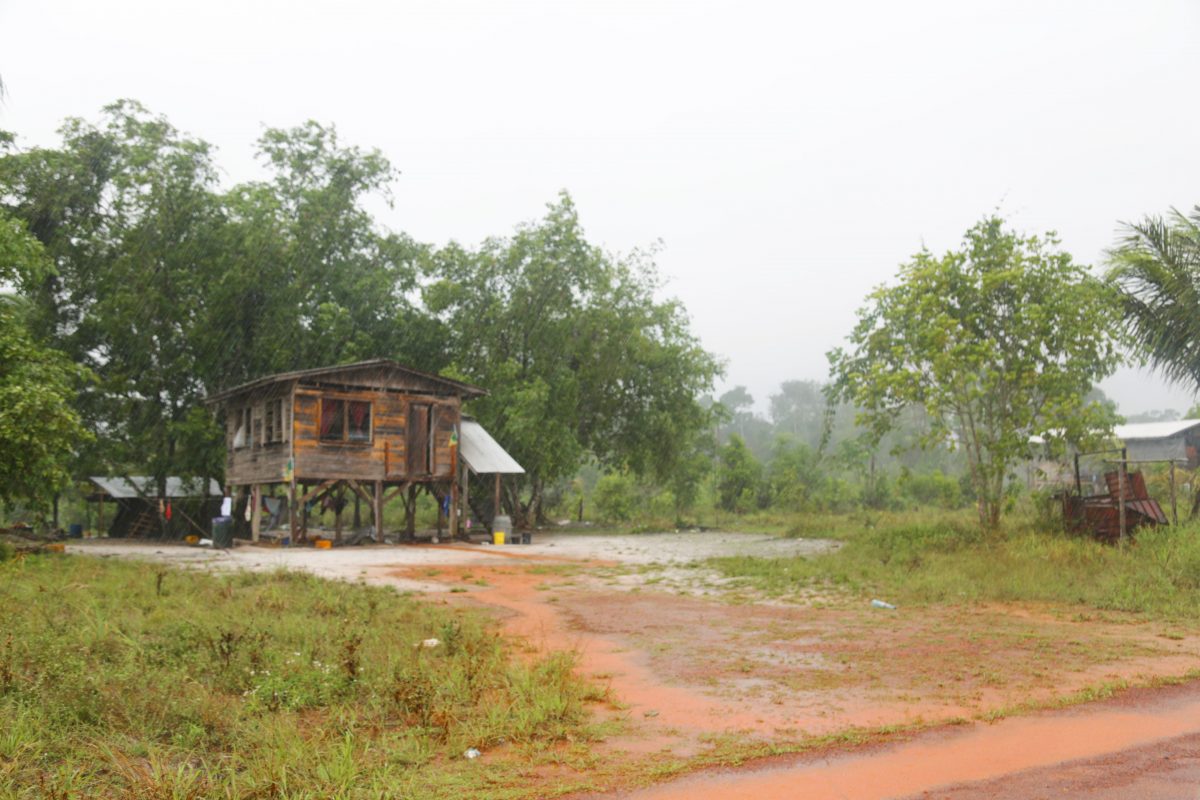Princeville is in Region Eight (Potaro-Siparuni), a half an hour’s ride from the mining town of Mahdia and home to more than 100 residents who are still learning to co-exist with the wildlife that was there before them.
Princeville was named for one of its earliest residents, Allan Prince. Before then, it was known as Kangaruma Junction because it leads to Kangaruma Landing at the Potaro River. Princeville is considered a satellite of a larger community, called Campbelltown, and is under the leadership of the Campbelltown toshao.
To get to Princeville, one must first travel to Mahdia by bus or plane. The Mahdia buses can be found near the Linden Bus Park in Georgetown. A one-way trip costs $10,000 and the journey takes more than nine hours in the rainy season. When one is making this trip, it is best to stock up on snacks as the few shops that are situated along the 499 km Georgetown-Mahdia route are not cheap. At one shop, all that was available were wafers and Guzzlers and one of each totalled $900. One can also fly to Mahdia at a cost of $19,000 one way per person.
There are no guest houses or hotels in Princeville, so visitors stay at the Roger Hinds Hotel in Mahdia.
There is no public transportation between Mahdia and Princeville. Visitors have to charter a vehicle at a cost of $5,000 one way. The red dirt road offers a bumpy ride and during the rainy season, fallen trees might block the road, forcing drivers to get out from behind their steering wheels to chop away enough to ease by. However, on both sides of the road there are breathtaking glimpses of green mountains half covered in mist.
The village initially showed no signs of life, but then, in front of a shop where several men stood imbibing and chatting, children played a game of Sal-Out.
Shaline Smith sat with her baby under a tarpaulin, while her husband prepared food on the fireside in their outdoor kitchen. It was this same leaking tarp I would stand under with my umbrella when the rain and wind came furiously an hour later.
Smith hails from Princeville, while her mother, she said, came from Wakapau in the Pomeroon River. “Here is calm and nice to live,” Shaline said while cradling her three-month-old baby, who soon began crying, so that she had to stop and nurse him.
Once a month, she takes little Dishon to the health post in the village when health workers visit to give babies their vaccines. At other times, the health centre is closed.
A small, wooden building houses both the nursery and primary schools that cater for more than 40 children. The headmaster is the only teacher at the school, and he is assisted by a volunteer from the village. Older children attend Mahdia Secondary and stay at the dorms there.
There are two shops in the village; the smaller of the two does not receive as many customers as the main shop, which is owned by a Georgetown-born man who has been living at Princeville for a decade.
Smith farms with her husband near their house, planting for home use alone. The acushi ants, she said, pose a challenge as they cut down plants in the nights while they are sleeping.
Smith’s husband is a miner and is employed somewhere along the Potaro River. Because he is so close, he makes it home every fortnight.
Anita Daniels lay in her hammock resting, while keeping an eye on her three grandchildren who were climbing a tree. Daniels hails from Wakapau. In 1985, she left her home to visit her father who was employed at the mines in Mahdia. She never returned to Wakapau to live but settled in Princeville instead after she met her husband.
“Princeville, you find it more easy on the money side because mining pay good but Wakapau it’s hard because you have to do farming and you have to wait a long time before you can harvest and then you got to sell to get the money. When I first came this place wasn’t like this. It develop a lot. At that time, it had like one or two house,” she said.
Daniels’s mother-in-law was a village councillor at the time, and she opened a shingled, wooden structure for a school; it has since been reconstructed.
“We plant a farm to support ourselves but every night the acushi ants coming and drug-way we rice, cutting up our flower plants. We don’t have any poison for them right now… is long time since we didn’t get poison to use fuh them,” she added.
Nearby, the head and horns of a deer were slowly roasting on the fire. A friend of the Danielses had gone hunting and found the animal. The same friend also shot and killed a small wild cat; he took it to Daniels’s husband so he could skin it for him. Not far from the roasting deer head, the coat of the animal was pulled stiff by sticks and left for drying. Flies buzzed loudly around it.
Although there are standpipes situated at different spots in the village along the road, they are not functioning at the moment, forcing persons to depend on the creek for water. The village is provided electricity through generators and solar panels.
The solar panels, she said, were distributed to the villagers during 2015 by the then administration—which she believes was an election ploy to get voters.
Daniels’ husband, Victor, was born and raised in Princeville. At the time the village was open as Princeville, Victor was living in Bartica attending school there and returning home during school break to spend time with his parents and siblings. His mother was from Region Seven (Cuyuni/Mazaruni), so he had relatives living around Bartica, whom he stayed with. After 14 years, Victor returned to live in Princeville; his parents could no longer afford to send him to school.
He was 16 years old when he began working in the mines. Victor recalls being excited as he considered it an adventure. The excitement wore off very fast after that. Today he is still a miner and farms when he is home on break.
“It’s very difficult to live here,” he said. “We don’t have lights. We are poor people. Cost of living hard up here, very hard. We want current in this village. Some of us have TVs and fridges and we got to get current to use these things. I won’t recommend anybody to come and live here, but you know if people prefer an area with the mountains in the back, creeks and red roads, then I would say for them to have a comfortable life they would need like $1 million the least to make a life that is comfortable. If you’re looking for generators, a flush toilet and every little thing, then you gon need more than a million.”
He also shared his concerns about the condition of the access road into his village, then spoke about the poultry farm, located some five miles from the road. He believes that the farm is responsible for the house flies in the area. When asked why he was sure that the farm was responsible for the flies, Victor said that there was time when the farm was not in operation and the flies had ceased to come around. However, when the operations began again, they were back. Asked what he would recommend to the owners, Victor said he was not sure what could be done as he understood that was a means of income for the owner but went on to stress that he did not know how much longer he could put up with the flies.
‘A simpler life’
At the farm, owner of the chicken business and also the owner of the main shop in the village, Raymond Hohenkirk said that after falling in love with a Princeville girl, he moved to her community. Noting the needs of the residents, he ventured into business.
His grocery shop is in addition to his businesses in Georgetown. The man posited that at the time he arrived in Princeville, the road was in a worse condition, while pointing out that the car I had hired could not have made it along the road into the village. His Land Cruiser, is his main mode of transportation in and around the area. But when heading to the city, he prefers to travel by plane since it takes only a matter of 15 minutes.
“You know, I like nature. The people, they live a simpler life and it’s strange for me because I’m a coast lander. I used to do mining, but I stop because they don’t have gold in the area like before. I’m trying now to create jobs. The [older women] here, is not like they can go and work on a dredge. When we plucking chicken, I does bring on about four women. The shop got some other persons working there also,” he said.
The complaint about the chicken pens breeding flies was raised, and Hohenkirk responded: “Well this area, anytime you doing something new, you gon always get a lot of complaints. When I first started [many persons] in the village had malaria and persons started saying that the chicken farm bring malaria. They stop saying that now. Right now, they got a lot of kobora flies, a fine fly, when it bites you it does left a mark, Princeville got a lot. If you take a walk on this farm here, you’ll find that my farm ain’t got a lot of flies like that side got. Of course, it’s a chicken farm and you will have flies, but flies are all over.
“These complaints doesn’t affect my business but then again, I don’t want to create problems with anybody. When people don’t understand something, they’ll blame it on something or somebody. Back in the old days, if you see something and you don’t understand it, is two ways you used to take it; you either fear it or worship it.”
Most of his customers are persons living in Mahdia. Hohenkirk takes some 3,000 pounds at a time to Mahdia to sell as he supplies shops there, including the Roger Hinds Supermarket. He sells chicken wholesale at $300 a pound. Selling at that price, he said, does not make much of a profit by the time expenses are added in, but for him it is more about providing a service.
He would like to see developments in Princeville, but said the villagers would need to want same, otherwise any progress will be hindered by complaints and non-cooperation.
He noted that there have been numerous times when he has hired men to work on his farm or do some work at his businesses only to find that after paying them at the end of the week, they disappear to drink rum and he has to find other workers.
In addition, he has had chickens stolen on several occasions. He said that while there are wild animals around, like jaguars, that could make off with them, he is more worried about the predators that come on two feet. To steal his meat birds, persons would have to cut the mesh around the property, which means he incurs additional expense to fix or replace it. Their excuses were that they were hungry and did not have money to buy anything
The man said that originally, he had intended to get a large generator to supply streetlights along the road, but because of the complaints, he has dropped the idea. “That mindset is not good at all for development. [In spite of] all the complaints I still continue trying. I’m not about to let that stop me.”
Hohenkirk has an online business as well. Princeville benefits from the Digicel network even though it is what he called “spotty”. The businessman also has a dish that provides Wi-Fi signal.
The section that Hohenkirk lives on is state land and is considered Mahdia while the road that runs alongside separates Mahdia from Princeville. Nevertheless, because this area is a total of seven miles from the actual inhabited mining town, persons refer to the entire area as Princeville.
